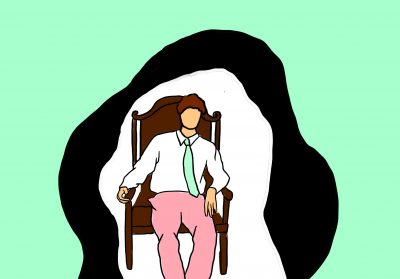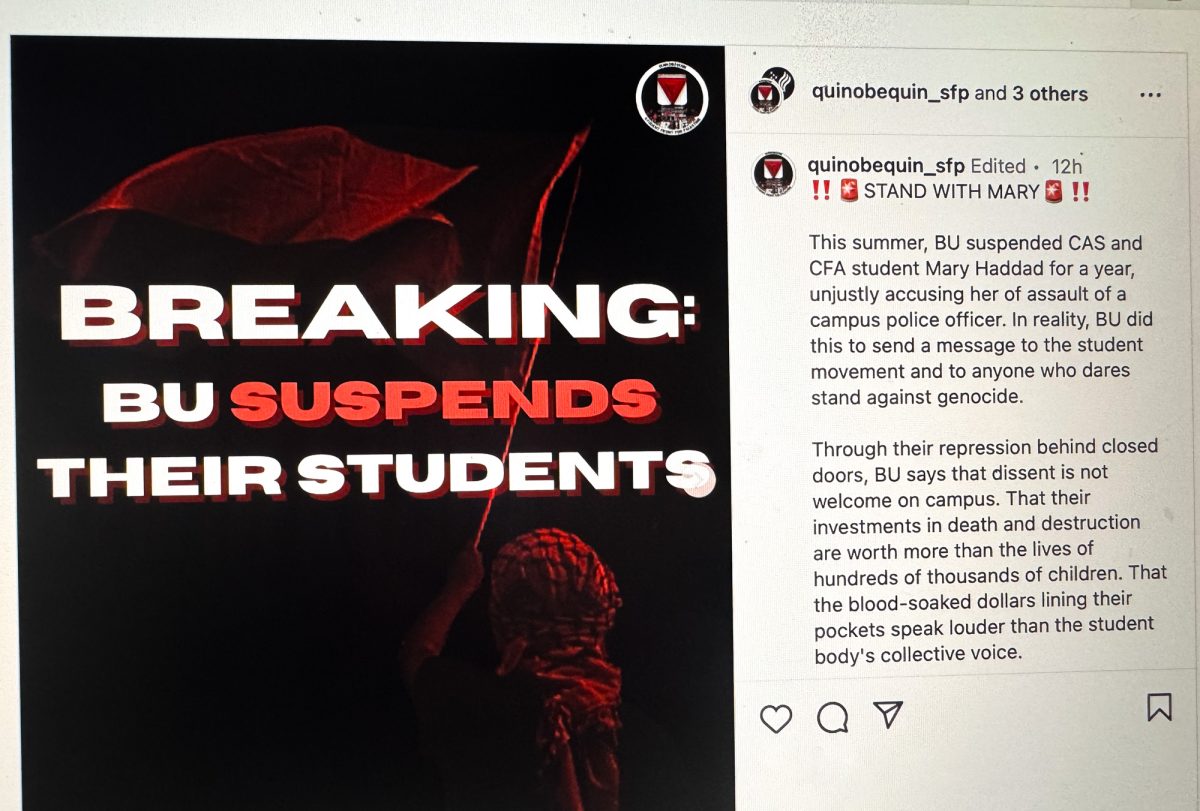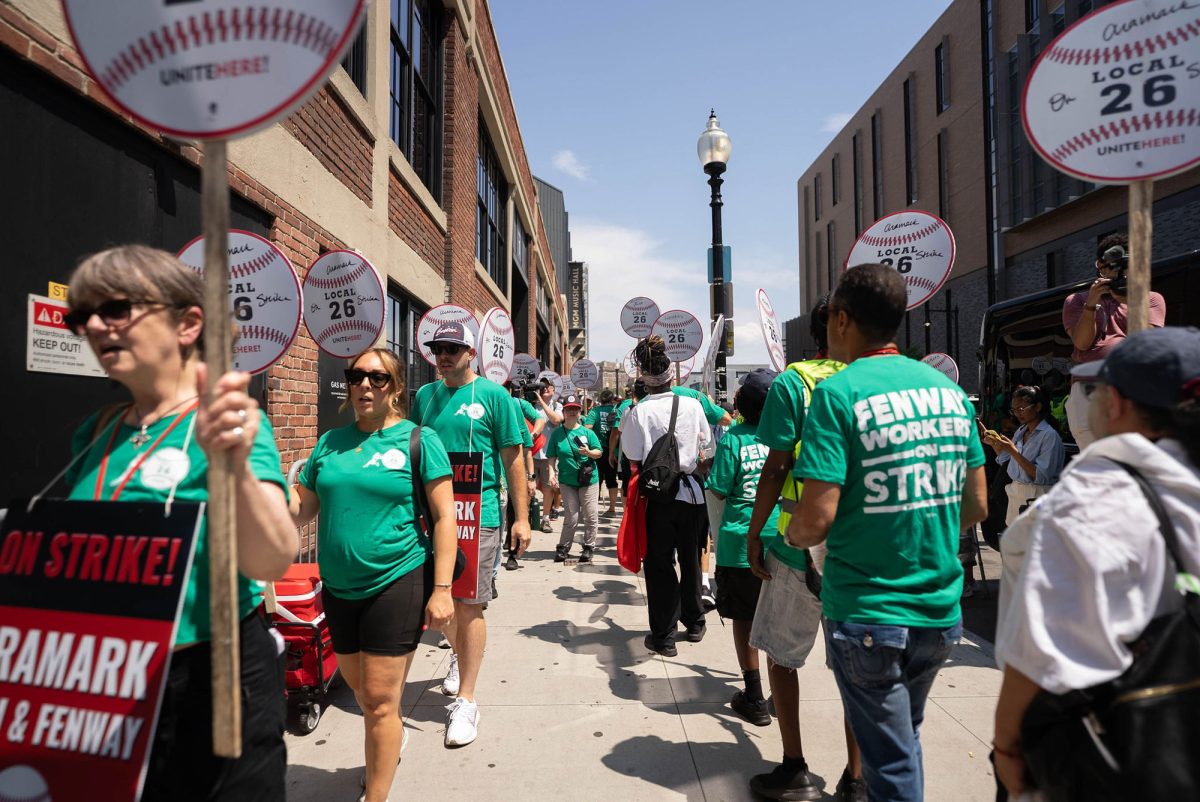A protest demanding the removal of Kappa Sigma’s university affiliation held last Saturday due to an alleged rise of sexual assault misconduct allegations from the fraternity brings new questions to light about the place of fraternities on our campus and in our broader society.
In 2015, the fraternity Kappa Sigma Mu Psi lost its Student Activities Office-affiliation due to it cosponsoring a “University Blackout” party. In the letter informing Kappa Sigma of the University’s withdrawal, then assistant dean of students John Battaglino described the marketing materials utilized to promote the party as facilitating “a culture of abusive behavior that openly celebrates verbal sexual coercion, belittling women, grabbing, groping, forced kissing, and the badgering of women for sex.”

Moreover, ‘blackout’ parties, in which students are encouraged to drink to excess, have been described as spaces that facilitate the sexual assault of women.
The 2015 withdrawal letter spent too much time admonishing Kappa Sigma for utilizing BU’s name in the marketing materials. Regardless, BU’s decision was effective in some respects.
It prevented Kappa Sigma from utilizing University-owned spaces, recruiting members and sponsoring events and activities.
Kappa Sigma eventually regained its affiliation, but the misconduct allegations did not end. Multiple allegations of assault by Kappa Sigma members or occurring at Kappa Sigma events have appeared on the Campus Survivors platform — an Instagram account where survivors of sexual assault can share their stories. The very first post on the page was an account of assault at Kappa Sigma.
Boston University should listen to its students, and remove Kappa Sigma’s Student Activities Office-affiliation permanently.
To those who may think this is a harsh punishment, the fact of the matter is that Kappa Sigma Mu Psi — as a fraternity — is entangled within the system of abuse and impunity that it perpetuates.
Frats foster a culture that prioritizes toxic masculinity and conformity over empathy. The pledging process — no matter how regulated and seemingly benign — nonetheless requires a degree of discipline and obedience from pledges. Manipulation induction tactics, such as hazing, encourage pledges to forget their morals to please their brothers and conform to the expectations set out for them. Thus, the pledging process in itself may reinforce the practice of not speaking out against tradition.
This mentality may eventually allow for sexual assault to occur, either from frat members who feel disempowered in their position due to hazing rituals and wish to hold power over someone else or frat members who have been trained not to question morally objectionable actions due to their time as pledges.
This culture of impunity around egregious behavior fostered in frats may eventually bleed into other sectors of society as frat members rise into positions of higher power.
Kappa Sigma’s Mu Psi chapter used to characterize itself as seeking “BU’s most promising and socially well-rounded gentlemen.”According to a 2014 study by Cornell University, 85% of Supreme Court Justice members were involved in frat life, despite only 2% of the U.S. population being involved in frats.
Supreme Court Justice Brett Kavanaugh, whose appointment into the Supreme Court was met with controversy over his alleged assault of a high school classmate, was also in a frat while in college. Kavanaugh’s frat, Yale’s Delta Kappa Epsilon chapter, has had multiple allegations of sexual assault throughout the years.
Kavanaugh has a history of blocking abortion rights. He has ruled that people with intellectual disabilities may be medically operated on without their consent. According to the National Women’s Law Center, Kavanaugh’s legal record as a judge “demonstrate[s] a narrow view of the Constitutional right to liberty and a profound disrespect for individuals’ ability to make fundamental decisions about their bodies and futures.”
None of this is to say that fraternities are the root of all evil or are entirely responsible for Kavanaugh’s actions. However, it is important to note that frats foster a culture of obedience, unquestioning allegiance and a persistent lack of empathy.
To some, frats represent a malignant, concentrated manifestation of the widespread culture of misogyny and racism that inform our country at large.
The bottom line is, Kappa Sigma Mu Psi is not an aberration — it is merely a symptom of a much larger issue perpetuated by frats. A 2015 article defending Kappa Sigma from blog Total Frat Move summarized this idea well, titling it: “Boston University Suspends Kappa Sigma For Being Normal Dudes, Promoting A Party With Hot Chicks.”
Last January, in response to an open letter demanding change concerning how the university mishandled sexual assault cases, Kappa Sigma released a statement promising to combat sexual assault through training and education.
But none of these promises have been further fleshed out, and the misconduct allegations have not waned.
If Boston University is serious about supporting victims of sexual assault, then their plan of action cannot begin and end with sexual assault training. Taking away Kappa Sigma’s SAO affiliation — and requiring tangible change from the fraternity before they grant them back this recognition — would be a true first step in dismantling the systems that allow this kind of rampant sexual abuse to take place with impunity.
Nick Kolev, Standards Chair of the Board of Directors and previous Campus News Editor, is a member of Kappa Sigma. He was not involved in the editing of this story.
CORRECTION: In an earlier version of the story, it was misstated that the statement Kappa Sigma released last January had been deleted when it is still up on their Instagram page. This article has been updated to accurately reflect this.

























































































































Tracy L McElhenie • Oct 27, 2021 at 3:52 pm
Very informative article. Thank you for pursuing this so that everyone knows what is happening.